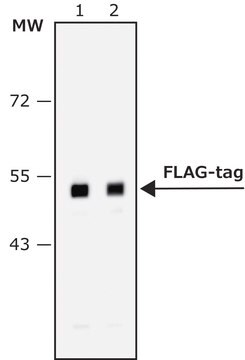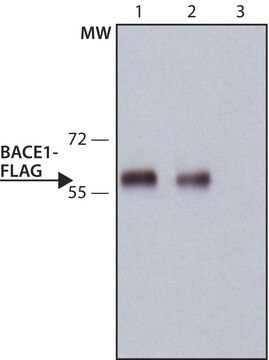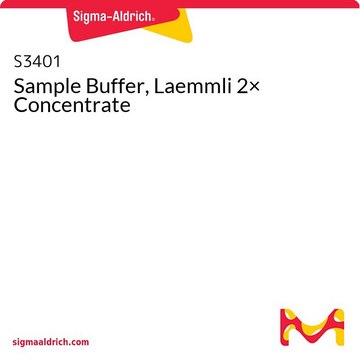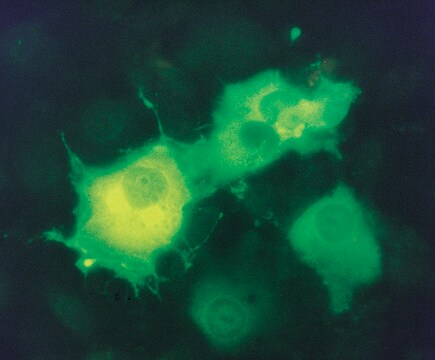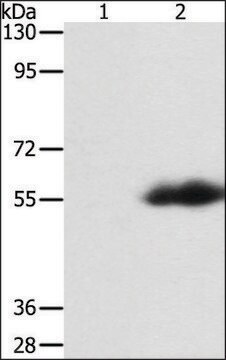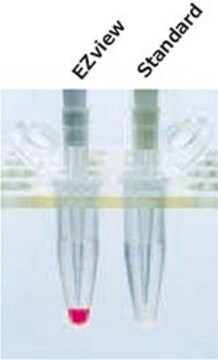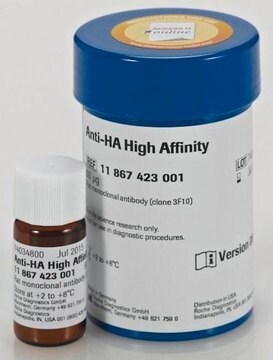SAB4200119
Monoclonal Anti-FLAG-Peroxidase antibody produced in rat
2-4 mg/mL, clone 6F7, purified immunoglobulin
Synonym(e):
Anti-ddddk, Anti-dykddddk
About This Item
Empfohlene Produkte
Biologische Quelle
rat
Qualitätsniveau
Konjugat
peroxidase conjugate
Antikörperform
purified immunoglobulin
Antikörper-Produkttyp
primary antibodies
Klon
6F7, monoclonal
Form
buffered aqueous solution
Speziesreaktivität
all
Konzentration
2-4 mg/mL
Methode(n)
western blot: 1:1,000-1:2,000 using extracts of transfected cells expressing C-terminal FLAG-tagged fusion protein
Isotyp
IgG1
Immunogene Sequenz
DYKDDDDK
Versandbedingung
dry ice
Lagertemp.
−20°C
Allgemeine Beschreibung
Immunogen
Anwendung
Physikalische Form
Rechtliche Hinweise
Sie haben nicht das passende Produkt gefunden?
Probieren Sie unser Produkt-Auswahlhilfe. aus.
Lagerklassenschlüssel
10 - Combustible liquids
Flammpunkt (°F)
Not applicable
Flammpunkt (°C)
Not applicable
Analysenzertifikate (COA)
Suchen Sie nach Analysenzertifikate (COA), indem Sie die Lot-/Chargennummer des Produkts eingeben. Lot- und Chargennummern sind auf dem Produktetikett hinter den Wörtern ‘Lot’ oder ‘Batch’ (Lot oder Charge) zu finden.
Besitzen Sie dieses Produkt bereits?
In der Dokumentenbibliothek finden Sie die Dokumentation zu den Produkten, die Sie kürzlich erworben haben.
Kunden haben sich ebenfalls angesehen
Unser Team von Wissenschaftlern verfügt über Erfahrung in allen Forschungsbereichen einschließlich Life Science, Materialwissenschaften, chemischer Synthese, Chromatographie, Analytik und vielen mehr..
Setzen Sie sich mit dem technischen Dienst in Verbindung.
